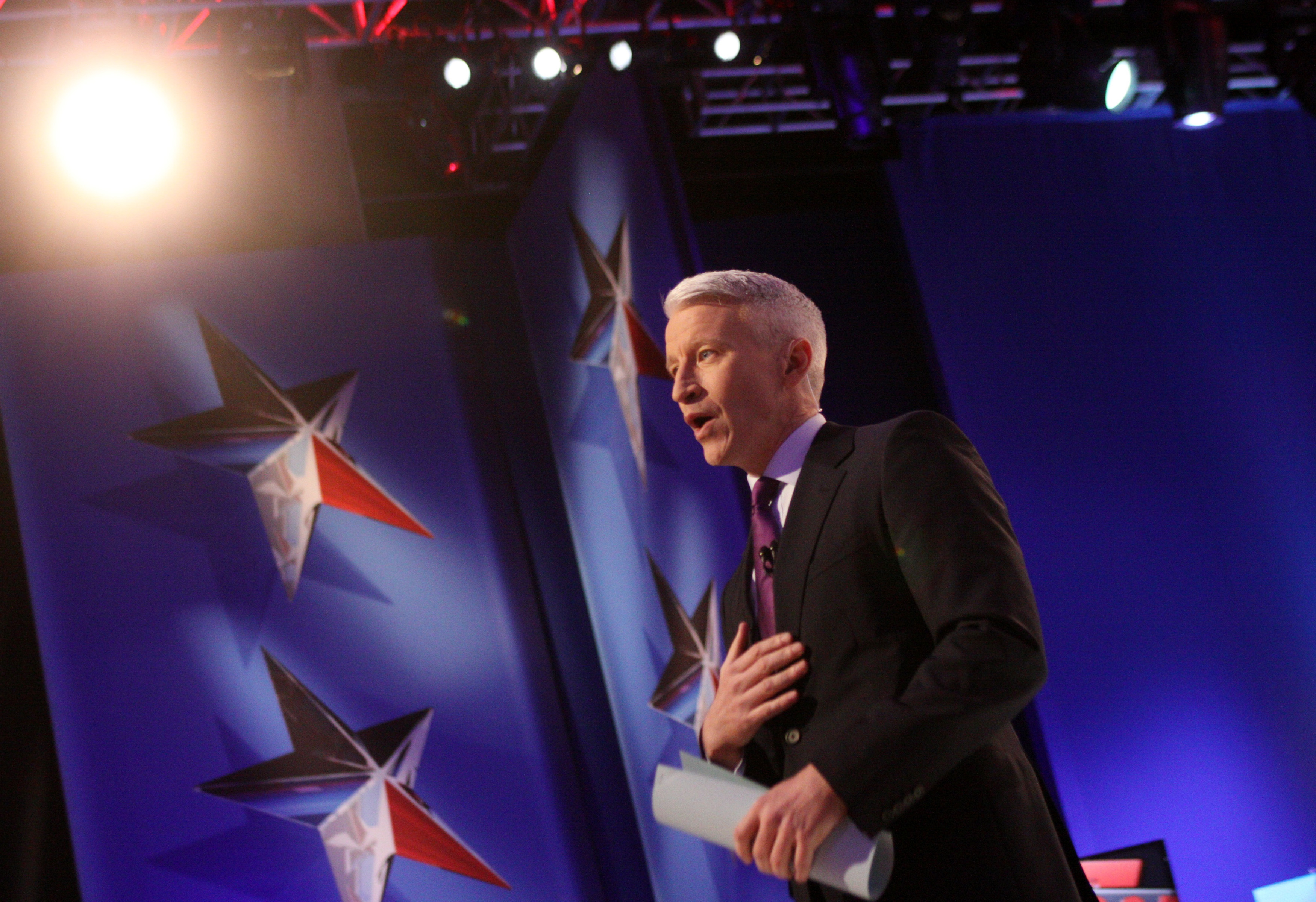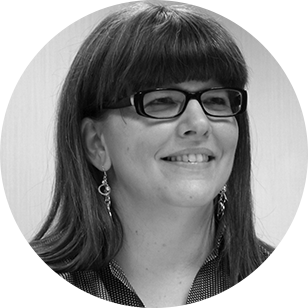Why Anderson Cooper's advice to 'follow your bliss' is so wrong
Yes, you should follow your passion. But make sure you have a Plan B.


A free daily email with the biggest news stories of the day – and the best features from TheWeek.com
You are now subscribed
Your newsletter sign-up was successful
I like Anderson Cooper. I respect Anderson Cooper. In fact, I have a crush on Anderson Cooper (my marriage and his sexuality notwithstanding). But sometimes people we like, respect, and have crushes on can make our hair stand on end — as was the case for me last week, when Fast Company ran an excerpt from Cooper's contribution to Getting There: A Book of Mentors.
Headlined "Why No 'Plan B' Is The Only Plan," Cooper's essay is, when stripped of its particulars, fairly standard Advice To Young People: Work really hard; don't give up when the going gets tough; believe more in yourself than in naysayers.
It being graduation season, there's a lot of this going around, and most of the people proffering the advice are not unlike Anderson Cooper: They beat some kind of odds, and achieved success by following their passion. Indeed, "follow your passion" is something of a leitmotif of the Advice To Young People genre — or, as Cooper's mother put it to him, "follow your bliss." Following one's passion/bliss is, we're given to understand, the only way to lead a fulfilling life.
The Week
Escape your echo chamber. Get the facts behind the news, plus analysis from multiple perspectives.

Sign up for The Week's Free Newsletters
From our morning news briefing to a weekly Good News Newsletter, get the best of The Week delivered directly to your inbox.
From our morning news briefing to a weekly Good News Newsletter, get the best of The Week delivered directly to your inbox.
I do not doubt any of the details of the grinding work and loneliness that Cooper endured on his way up, and, like him, I know more than a little about having one's life shaped by loss and grief. But Cooper, like many well-meaning advice-givers before him, elides two facts: He was born into multiple layers of privilege, and for every success story, there are at least a dozen people who actually fail.
"No 'Plan B'" makes no mention of the fact that Cooper's follow-your-bliss mother is Gloria Vanderbilt. There's no mention that Cooper's gender might have been an advantage as he flew into war zones with $5 and a cheap camera. Skin color, the genetic jackpot of movie-star good looks, and his formidable education don't factor in. And there's not even a hint that as he followed calamity around the globe, Cooper did so in the knowledge that in a pinch, someone would be able to get him home.
Most people who follow their passion, even most talented people — even most talented people who work really really hard — will never be as successful as the people who give Advice To Young People. Most really good ball players don't make it to the majors; most really good musicians never win a Grammy; most really good scientists don't land at NASA.
Talent and dedication are crucial, but much of this process is subjective, biased, or blatantly unfair, and a lot of it comes back to the simple and deeply troubling fact of economic disparity. It's easier to achieve your dream if you can afford to work for free; it's easier still if you've spent your entire life around people who've already made it. There's a point at which talent (or belief in oneself) has absolutely nothing to do with it.
A free daily email with the biggest news stories of the day – and the best features from TheWeek.com
Indeed, just the notion of following one's passion/bliss is steeped in historic, economic, and social privilege. For the vast majority of human history, you were grateful if you and yours ate today and could know with some certainty that you would also eat next week. In fact, I feel safe in saying that this remains true for most humans alive today. Those of us who can even entertain the idea of following our passion are already living with a certain degree of good fortune, however uninspiring we may find it ("I get to eat next week? That's it?").
But of perhaps greatest relevance to today's Young People is the economy that awaits them. As comic artist Matt Bors notes in his book Life Begins At Incorporation: "Barely scraping by and taking what you can get is the new normal. Having 500 people show up to apply for jobs at Walmart, who pursues a strategy of paying people such low wages that they qualify for government assistance, that's the new normal." (And don't get too excited about Walmart's recent wage hike — a $10 hourly rate is still only about $20,000 a year).
Cooper has said publicly that he won't be inheriting his mother's money, and has made a point of building his career on his own, from the ground up — but to imply that all this means that he didn't have advantages to which most people have no access is not just misleading, it's unkind.
"Have no Plan B" is terrible, terrible advice. Plan Bs save lives.
"Follow your bliss," on the other hand, isn't bad — as long as we don't stop there. Follow your bliss, for as long as you can (even when it's exhausting and expensive) — but don't be cruel to yourself if it doesn't work out. Know that peace of mind and being able to pay your bills are also good, life-affirming things.
Follow your bliss — and for the love of Pete, try to have a Plan B.
Emily L. Hauser is a long-time commentary writer. Her work has appeared in a variety of outlets, including The Daily Beast, Haaretz, The Forward, Chicago Tribune, and The Dallas Morning News, where she has looked at a wide range of topics, from helmet laws to forgetfulness to the Israeli-Palestinian conflict.
-
 Sepsis ‘breakthrough’: the world’s first targeted treatment?
Sepsis ‘breakthrough’: the world’s first targeted treatment?The Explainer New drug could reverse effects of sepsis, rather than trying to treat infection with antibiotics
-
 James Van Der Beek obituary: fresh-faced Dawson’s Creek star
James Van Der Beek obituary: fresh-faced Dawson’s Creek starIn The Spotlight Van Der Beek fronted one of the most successful teen dramas of the 90s – but his Dawson fame proved a double-edged sword
-
 Is Andrew’s arrest the end for the monarchy?
Is Andrew’s arrest the end for the monarchy?Today's Big Question The King has distanced the Royal Family from his disgraced brother but a ‘fit of revolutionary disgust’ could still wipe them out
